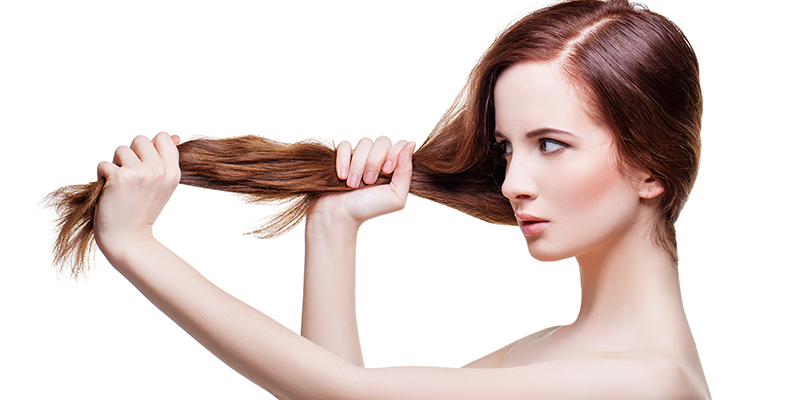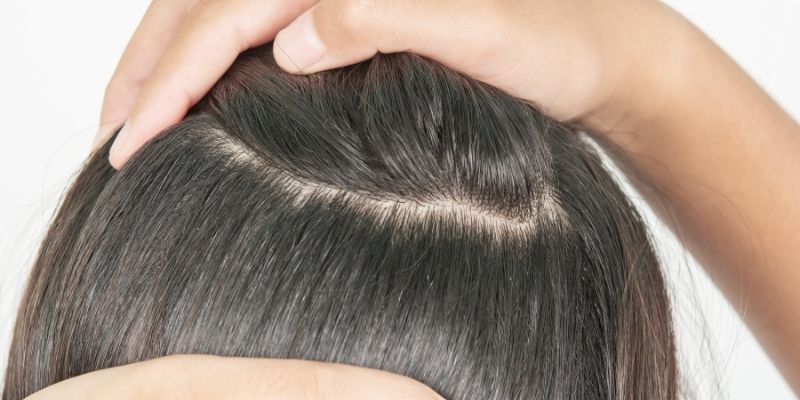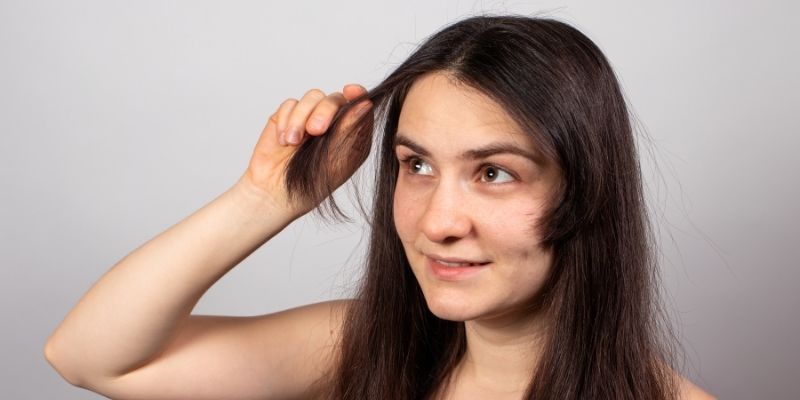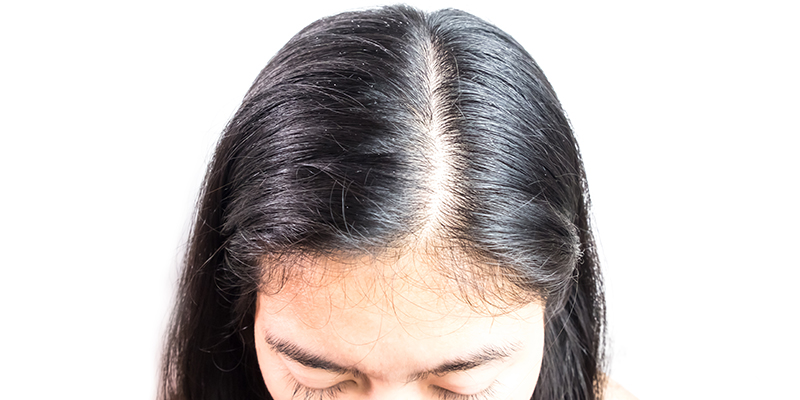In This Article
Collagen for Hair: Benefits, Side Effects & Results
Collagen for hair: wondering what that is about? Well, it is a protein that plays an important role in maintaining the strength, elasticity, and structure of our skin, joints, and, yes, also hair! Ageing reduces the collagen production, which results in thin, dry, and brittle hair. It also slows down hair growth. If you are worried about hair breakage and want healthier, shinier hair strands, then collagen might be the missing element.
In This Article
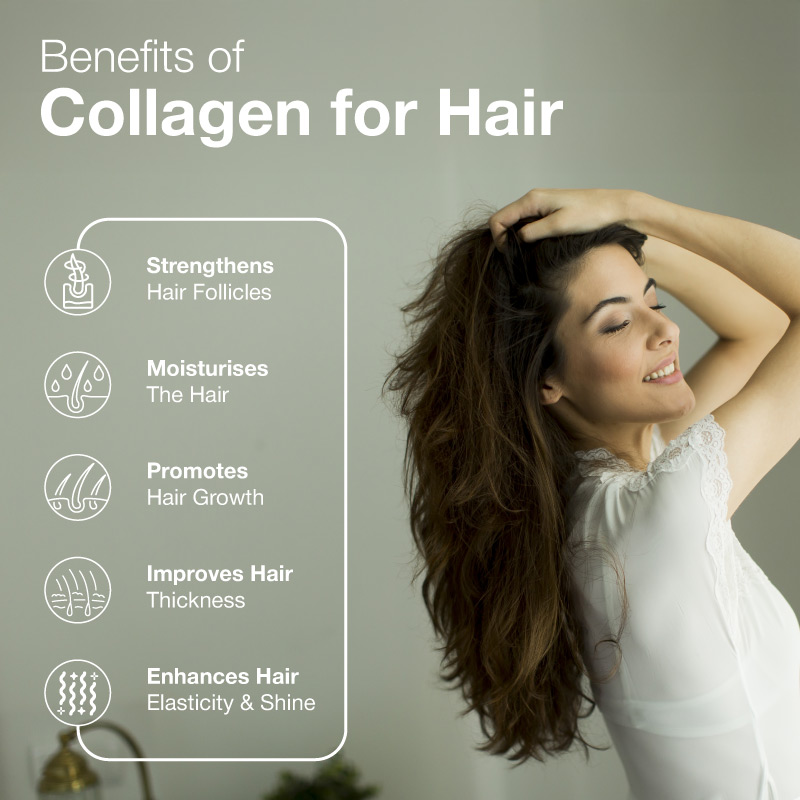
What Is Collagen & Why Is It Important For Hair?
Collagen is the protein that provides structure and strength to skin, hair, and nails. [1] It plays an important role in keeping the hair follicles and the skin around the scalp healthy. It is made up of amino acids that help build keratin, the protein in hair strands. It works to reduce hair thinning, improve root strength, and maintain scalp elasticity. Collagen also has antioxidant properties that protect hair from free radicals. In short, collagen keeps your hair healthy, strong, shiny, and youthful.
Key Benefits Of Collagen For Hair
The following are the advantages collagen provides for your hair:
-
Strengthens Hair Follicles:
Collagen provides the body with the amino acids to produce keratin, the most important hair protein, giving you stronger, shinier hair. It strengthens the hair shaft and reduces hair breakage.
-
Promotes Hair Growth:
Collagen improves scalp health and reduces oxidative stress, both of which are crucial for healthy hair growth.
-
Improves Hair Thickness & Volume:
Collagen strengthens the scalp structure by supplying amino acids that help produce keratin. It also protects the skin from free radicals. This promotes healthy hair growth while reducing breakage. [2]
-
Enhances Hair Elasticity & Shine:
Collagen helps the hair retain moisture so you will notice smooth, shiny, and naturally healthy hair.
-
Slows Hair Ageing:
Since collagen promotes the production of andioxidants that help fight free radicals, you can expect a slowdown in ageing, thinning, and hair loss, the most common signs of ageing hair.
Different Forms Of Collagen For Hair
| Type of Collagen | Source | How It Helps Hair |
| Type I | Skin, fish, bovine (cow) | Strengthens scalp structure and supports hair follicle health. |
| Type III | Skin, bovine | Works with Type I to maintain scalp elasticity and blood circulation for hair growth. |
| Type V & X | Eggshell membrane, chicken | Support hair follicle formation and overall scalp health. |
| Marine Collagen | Fish | Rich in Type I, easily absorbed; promotes stronger, thicker, and shinier hair. |
| Bovine Collagen | Cow hide/bones | Contains Type I & III; supports keratin production for stronger hair strands. |
How To Incorporate Collagen Into Your Routine?
Before you learn about how to start using collagen for hair, it is important to understand that collagen supplements only boost the body’s ability to rebuild itself. They do not directly provide collagen for hair. The digestive system breaks the oral supplements down into smaller peptides and amino acids. Your bloodstream absorbs them, signalling your body to produce collagen in the skin, scalp, and connective tissues. Over time, with consistent use, your skin’s elasticity and hydration improve. It also helps with scalp health and keratin production, giving you stronger hair.
Here are the different ways in which you can include collagen for hair:
- Oral Supplements: The simplest, easiest, and the most effective way to boost your collagen is to include collagen powders, capsules, and gummies. It is best to consult a dermatologist before you start to ensure safety.
- Collagen-rich Foods: Bone broth, chicken skin, fish, and eggs are foods that boost collagen production.
- Vitamin-C Intake: Include vitamin-C-rich foods like oranges, berries, kiwis, strawberries etc that help improve collagen production.
- Lifestyle Changes: Protect your hair from sun damage. Cover your head when you step out. Avoid smoking and manage your stress to prevent collagen breakdown.
- Topical Applicants: Collagen in the form of topical applications don’t offer the same benefits as oral supplements, but shampoos, serums, and hair masks can improve hair texture and appearance. If you want to improve hair strength, oral collagen supplements are the best.
Must Read: What’s The Relation Between Collagen And Hair Loss?
How Long Does It Take to See Results from Collagen for Hair?
On average, it takes 8-12 weeks to notice visible improvement in hair texture, smoothness, and shine. It takes up to 6 months to see a change in thickness, density, and hair volume. It is important to note that the results vary for everyone, depending on age, nutrition, lifestyle, and the consistency of using supplements.
Potential Side Effects & Who Should Avoid Collagen?
Collagen is generally safe, but some people may experience mild side effects such as:
- Digestive Issues: Some may experience bloating and heartburn.
- Allergic Reactions: People allergic to fish and seafood may experience allergic reactions to collagen sourced from fish.
- Aftertaste: You may experience an unpleasant taste in the mouth with some oral collagen supplements.
- Skin Reactions: Some people experience mild rashes or sensitivity in rare cases.
- Rare Effects Kidney Or Liver: Intake of very high doses can affect the kidneys or the liver, especially among those already suffering with kidney or liver concerns.
Note:
We recommend consulting an experienced dermatologist for a holistic analysis before considering collagen supplements.
Takeaway
Collagen is an important protein that ensures your hair is thick and strong. It helps with keratin production, helping in creating a healthy scalp environment, protecting the hair follicles from damage. When you combine collagen intake (based on expert advice) with a balanced diet, healthy lifestyle, a proper hair care routine, it works like an asset. Consulting a dermatologist is the key.
Frequently Asked Questions On Collagen For Hair
Collagen improves scalp health, creating the optimal conditions for better hair growth. It can also contribute to better hair texture.
It can help with hair thinning, but if you are suffering from genetic hair loss, you need more advanced dermatological solutions. Treating the root cause is crucial in reducing hair loss.
If your hair thinning is due to stress, poor nutrition, or ageing, collagen can help, but it is not a cure.
The average is between 2.5 and 10 grams per day, but you should consult a dermatologist to learn what amount works best for you.
Include Foods Rich In Vitamin C, As They Promote Collagen Production.
Yes, but it depends on the deficiencies you have and your requirements. You must consult a doctor before taking any supplements.
You will notice that your hair is smoother and shinier, with less breakage, a healthier scalp, and a fuller appearance.


